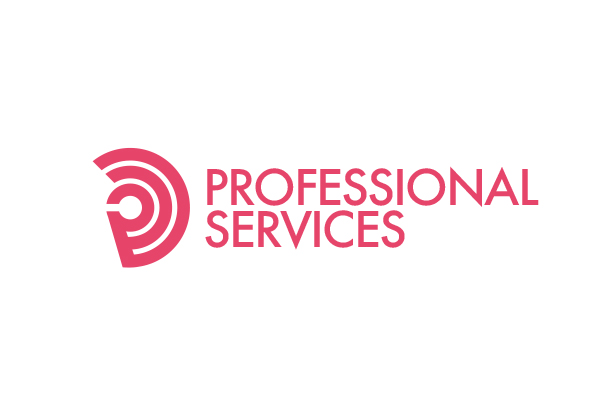
Accounting for software-as-a-service businesses involves a number of important considerations. Revenue recognition and costs must be separated and managed accurately. G&A expenses should also be recorded to ensure they don't eat into net operating earnings. To accomplish this task, you can use bookkeeping software like QuickBooks. Its ease of use and flexibility make it a good choice for startup SaaS companies.
Accounting for software-as-a-service companies
Accounting for software as a service (SaaS), company accounts requires special considerations. These companies must track multiple payment channels, understand cash flow, prepare for tax season, and keep records. There are many solutions available for SaaS businesses. Some of these solutions are specifically geared toward SaaS companies, while others are more general-purpose in nature.
SaaS providers often have a distributed workforce and operations across multiple states. This makes taxation more complicated. These types of services are not generally taxed in most states, but SaaS providers still have to comply with sales tax laws in the states they have nexus. SaaS providers require a highly qualified accounting team to address these issues. You should also know that taxation is an extremely complex area, and can lead to severe penalties if done incorrectly.

SaaS businesses should be able to report their revenue using the Generally accepted accounting principles (GAAP). This standardizes business accounting procedures across industries and improves transparency. For SaaS companies, cash basis accounting is not recommended. Accrual-based accounting is recommended for larger companies and SaaS companies that depend on subscription-based income. GAAP compliance can also be used to improve financial analysis and forecasting.
Recognizing Revenue
SaaS companies have unique requirements for revenue recognition. Revenue is usually recognized when a contract for the product is signed and the customer purchases it. The revenue is then transferred to the income statement from the balance sheet. GAAP accounting principles must be followed by companies to properly classify revenues. SaaS companies should also be aware of their disclosure obligations.
SaaS companies often struggle to recognize revenue due to the fact that certain elements of the product have been customized at the time. It is possible that the customer does not own the software during the hosting period. SaaS companies can have more difficulties recognising revenue from their services than with other types.
Companies should identify customers to simplify the recognition of revenue for SaaS. Company J might offer $2,000 for a six month consulting service. This revenue is recognized separately from its revenue from the other types of services. You can also have an impact on how revenue is recognized depending on the delivery method.

Costs
SaaS costs may vary widely and they can not always be easily spotted. SaaS services come with upfront costs and ongoing integration expenses. If you don’t make the monthly payments, the vendor may charge you. This is why it's crucial to assess your needs before making a final decision.
SaaS operating costs can be divided into three groups: sales & Marketing, Research and Development, and General & Administrative. SaaS companies invest 48% of their revenues in sales & marketing. Early-stage SaaS businesses may spend more on marketing and sales because they are still building a market for their software.
Costs of SaaS depend on the type of software and how complex it is. Complex features require more development time and have a greater chance of errors. Additionally, product size can impact cost. For example, a small SaaS product may require only a few basic features, but it could cost $300,000 if it's too complex. You can save money by using a minimum viable product (MVP).
FAQ
Which industries employ consultants
There are many different types of consultants. Some consultants are focused on a specific type of business, others may specialize in multiple areas.
Some consultants work only for private companies, while others represent large corporations.
Many consultants also work internationally to assist companies from all corners of the globe.
What is the average time it takes to become a consultant
The length of time required varies depending on your background and industry. People start work with a few weeks before they find employment.
Some consultants, however, spend many years perfecting their skills before they find work.
What qualifications do you need to become a consultant in order to get your degree?
The best way to become an expert on any subject is by studying the subject thoroughly and then practicing what you have learned.
Start studying today if you want the skills to be a great manager!
A degree without relevant experience may make it difficult for you to be hired. But, if your qualifications are comparable to those who have been hired, you might still be eligible to apply.
But remember, employers will always look for candidates with real-world expertise.
What can I expect from my consultant?
Once you select your consultant, you should expect to hear back from them within a few days. They will typically ask for information about the company, such as its mission, goals. products and services. budget. After receiving this information, they will prepare a proposal outlining their scope of work, estimated timeline, fees, deliverables and milestones.
If all goes well, the parties will then negotiate a written agreement. The terms of the contract will depend on the type of relationship between the two parties (e.g., employer-employee, employer-independent contractor).
If everything goes as planned, the consultant may begin to work immediately. He/she will have immediate access to your internal documents, resources, and you'll be able to access his/her skillset and knowledge.
Don't think that consultants are experts. It takes effort and practice to become an expert in whatever field you consult. So, don't expect your consultant to know everything about your business.
What are the types of contracts available to consultants?
Most consultants sign standard employment agreements when hired. These agreements define the terms of the agreement, including how long the consultant is expected to work for the client as well as what he/she should be paid.
Contracts can also indicate the areas of expertise that the consultant will concentrate on and the compensation they will receive. A contract may state that the consultant will deliver training sessions or workshops, webinars, seminars and other services.
Sometimes, the consultant simply agrees that a specific task will be completed within a set time frame.
Many consultants sign independent contractor agreements in addition to the standard employment agreements. These agreements allow consultants to work independently while still receiving payment.
How much should you charge as a consultant?
It all depends on the service you offer. It doesn't matter if you offer services at no cost. If you're selling products or services however, prices should be determined based on their value.
You don't have any products to sell if you provide low-quality services. So why would anyone pay you anything?
You might be able ask for a more expensive price if your services are of high quality. People recognize the value in you offering. Also, clients who purchase multiple packages from your company may get discounts.
What happens when the consultant finishes his job?
After the consultant completes his/her work, the final report will be submitted detailing the findings of their work. This report includes project timelines, deliverables, and any other pertinent information.
You will then review the report to determine if the consultant fulfilled your expectations. If the report does not meet your expectations, you have two options: to request changes or to terminate the contract.
Statistics
- WHY choose me: Why your ideal client should choose you (ex: 10 years of experience and 6-week program has helped over 20 clients boost their sales by an average of 33% in 6 months). (consultingsuccess.com)
- According to IBISWorld, revenues in the consulting industry will exceed $261 billion in 2020. (nerdwallet.com)
- 67% of consultants start their consulting businesses after quitting their jobs, while 33% start while they're still at their jobs. (consultingsuccess.com)
- My 10 years of experience and 6-step program have helped over 20 clients boost their sales by an average of 33% in 6 months. (consultingsuccess.com)
- "From there, I told them my rates were going up 25%, this is the new hourly rate, and every single one of them said 'done, fine.' (nerdwallet.com)
External Links
How To
How do you find a good advisor?
Understanding your needs is the first step to finding the right consultant. Are you looking for them to improve the performance of your website? Do you need them to optimize your site so that it ranks higher in search engines' results? You might also want someone to help you determine if your hosting provider is in trouble. When you are clear about the services you require, you can start to look at other companies. There are many consultants out there who claim they can provide these services, but only a few actually live up to their claims. How do I choose one? Here are some things that you need to keep in mind when selecting a consultant.
-
Get referrals. This is the best method to find a consultant. You don't want to hire someone you've never heard of before because you'll likely pay too much. But you also don't want to work with someone whose reputation isn't solid. You're fortunate enough to receive referrals from people you trust. However, even if this is not possible, you might still be able check reviews online. Find testimonials and case study examples from customers who have used your product.
-
Ask around. Many people are unaware that hiring a consultant could make a difference. They assume that their current situation is fine and they don’t need changes. However, this is usually untrue. Even if your results are great, there's a good chance that you haven’t kept up with the latest trends and technologies. Relying on outdated methods will prevent you from maximizing your potential for growth. It's worth asking your friends and family for recommendations to help you find the right consultant.
-
Make sure to verify their qualifications. No matter how small your project is, it's important to ensure that the consultant you choose has the necessary skills. You must ensure they have the necessary skills and qualifications to carry out the tasks.
-
Find out what type of projects they are skilled in. You might think that everyone can handle all projects, but this is false. Some areas require specialized training and education. You won't hire a Drupal developer if you need to build a WordPress template. The same goes for graphic design, programming languages, etc. Ask the designer what kind of projects they have worked on in the past.
-
Be aware of their fees. As we stated, you don’t want to pay too little for a consultant. You also don’t want to spend too little. Consultants come in all shapes and sizes. Some bill hourly, while others are charged per project. Knowing exactly what you're paying upfront will save you money down the road.
-
What do they offer? Are they offering free consultations or other services? Can they provide advice on how to setup your own system? Can they guarantee your site will rank higher if you work with them? You can cancel your consultation at any time without penalty if you are not satisfied with what you heard.
-
Also, ask if discounts are available for multiple months and years. Many consultants offer discounted pricing for extended periods of time. It is not necessary to commit to an entire year. However, you could still benefit from any deals offered by the consultants.